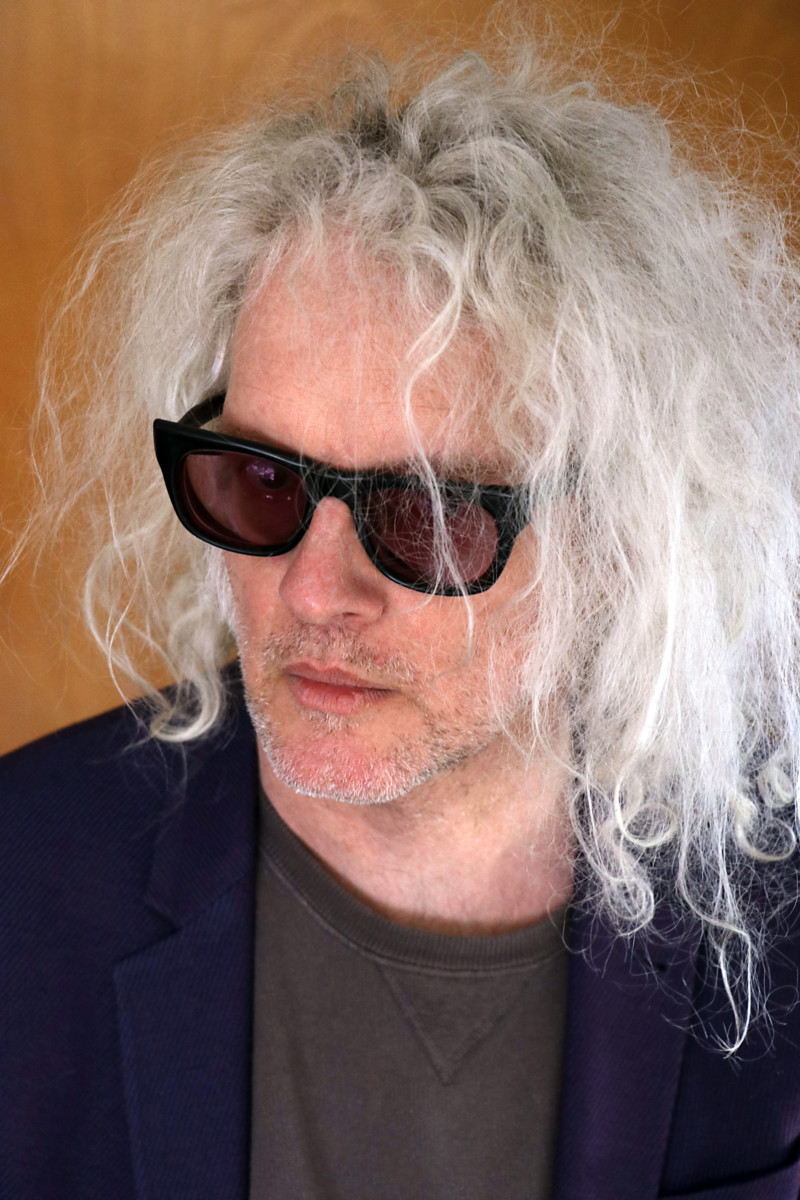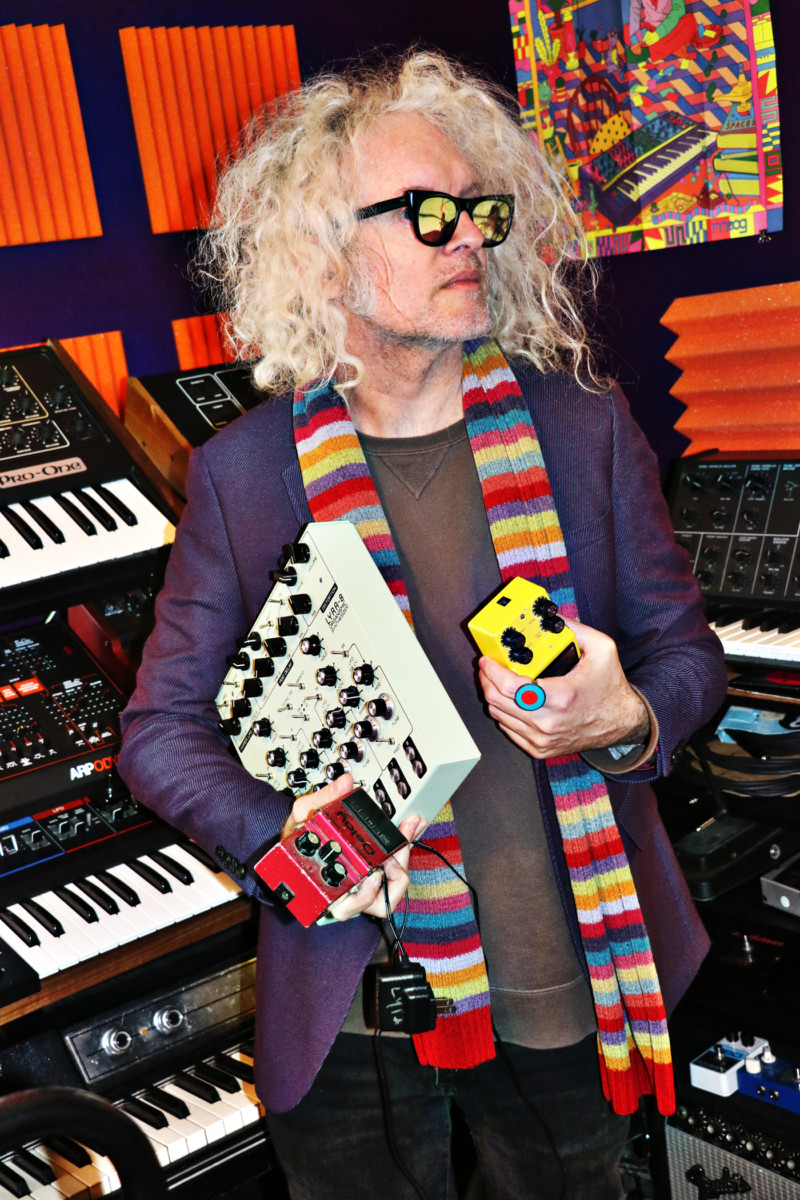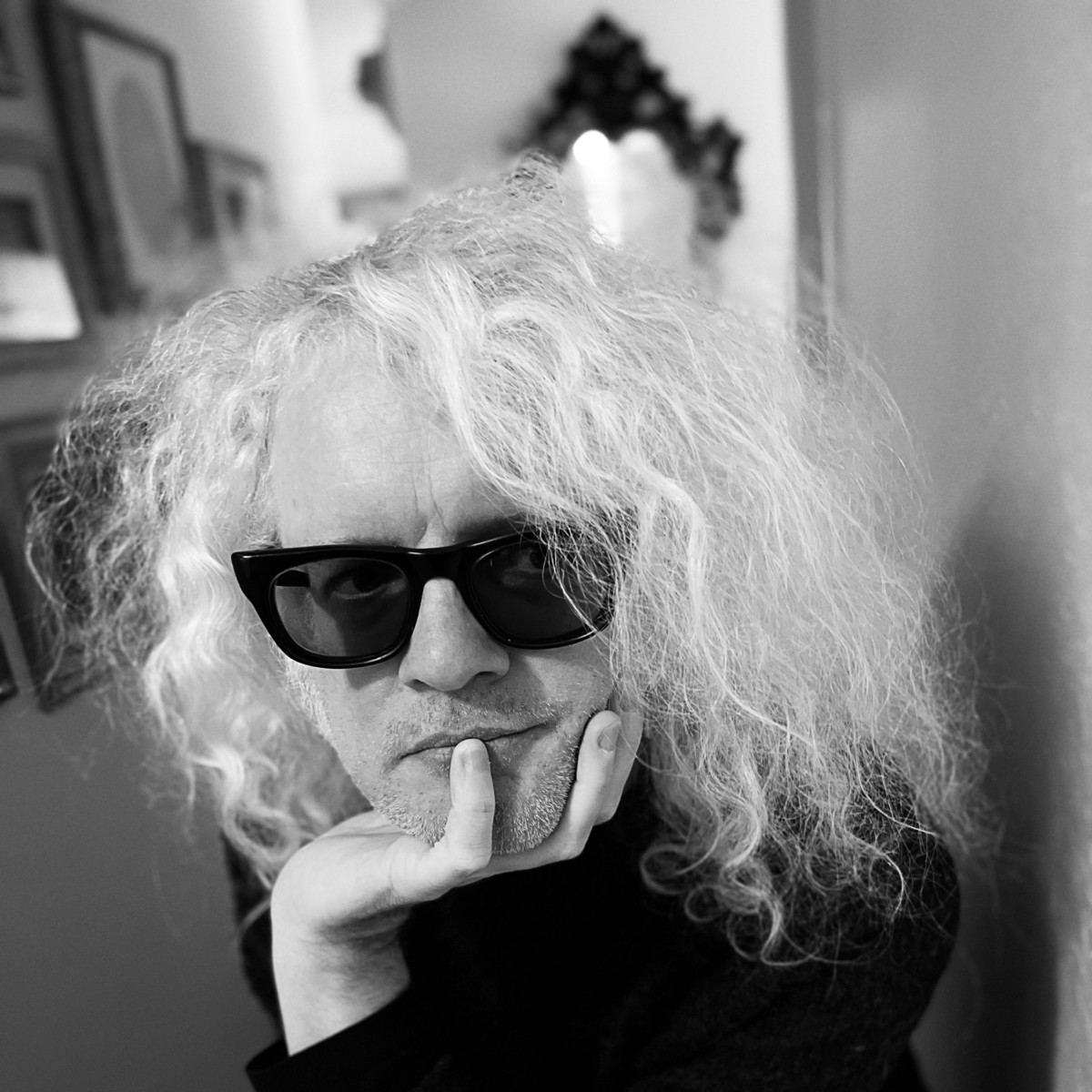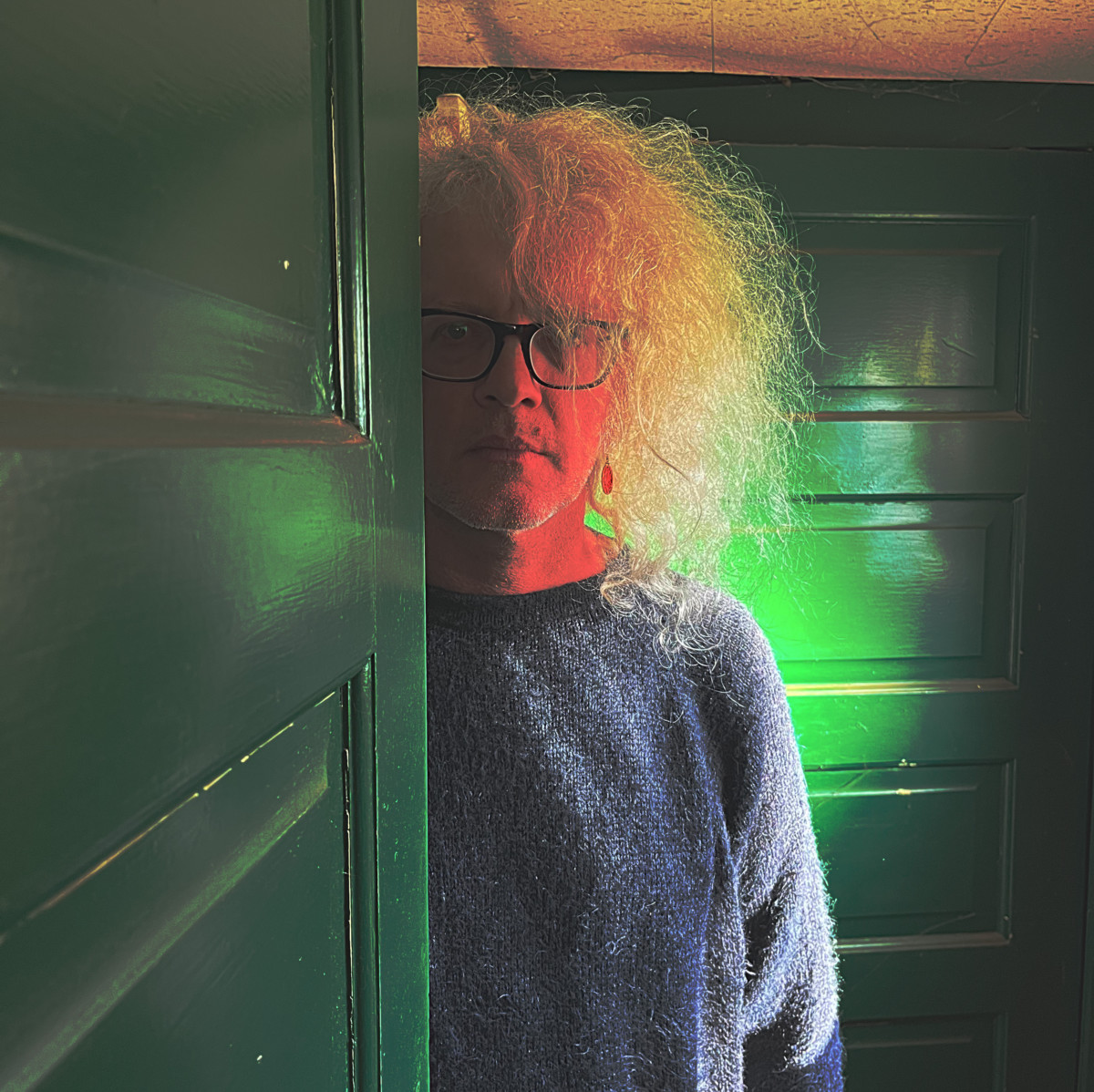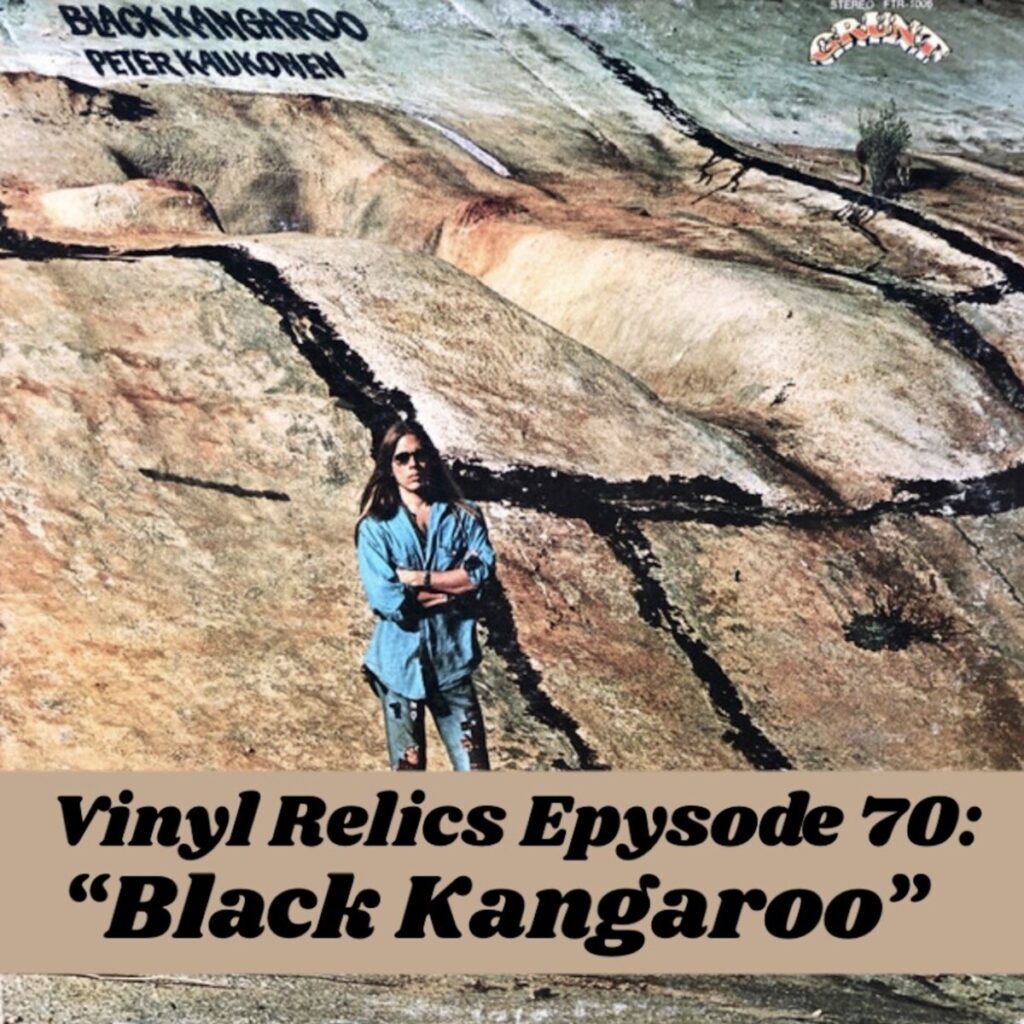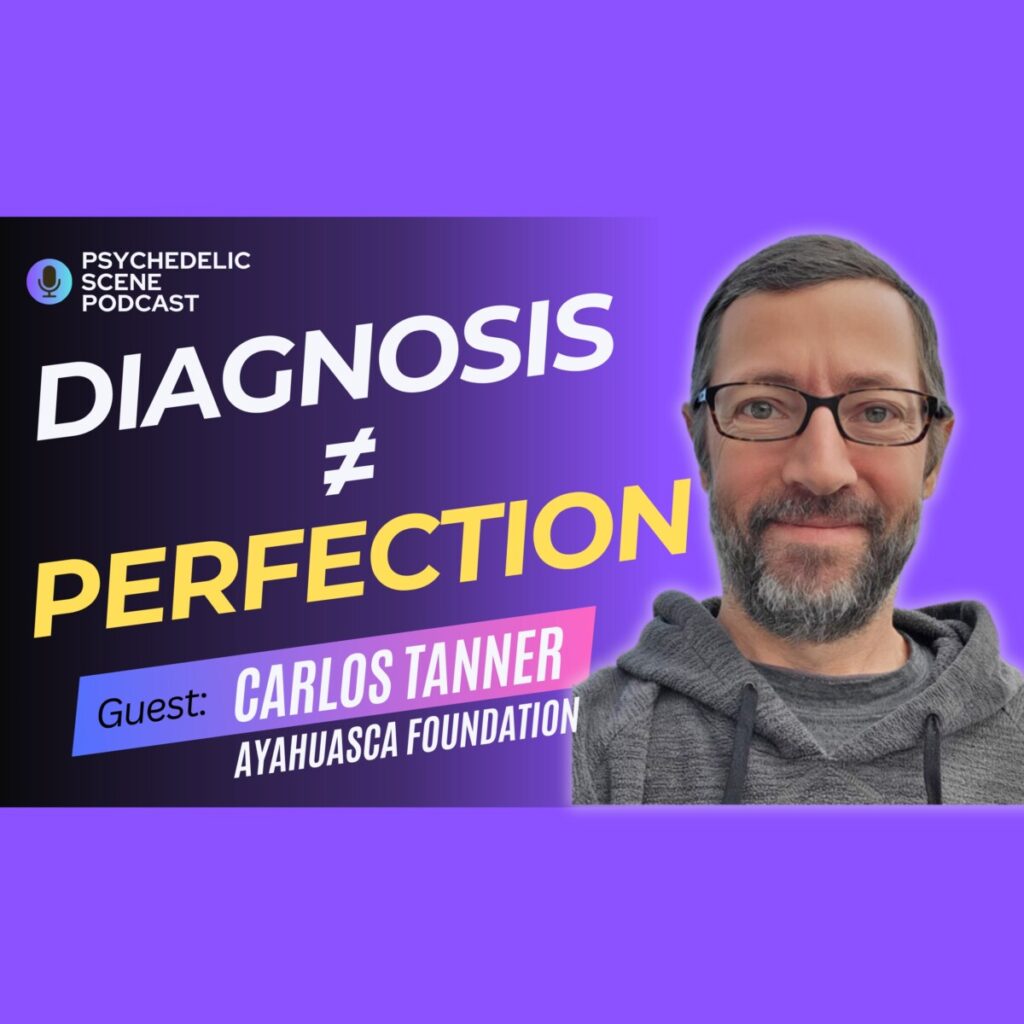Anton Barbeau: Interview
Anton Barbeau: Interview
The name Anton Barbeau may not ring a bell, but the Sacramento-based singer-songwriter and multi-instrumentalist has an impressive body of work that goes back decades. He’s about to release his umpteenth album of original material, much of which is considered psychedelic.
Barbeau’s new album, which drops on September 22nd, is called Morgenmusik/Nachtschlager and features guest spots by Colin Moulding (XTC), Donald Ross Skinner (Julian Cope), and Andy Metcalfe (The Soft Boys, Robyn Hitchcock and the Egyptians).
Barbeau was kind enough to answer a few questions for Psychedelic Scene.
Psychedelic Scene: The songs on your upcoming album Morgenmusik/Nachtschlager were written during three distinct writing sessions, with two trips to Berlin and one in California. How did these different environments influence the mood and themes of the songs you wrote in each location?
Anton Barbeau: I’m a child of 1967. Sgt. Pepper is my star sign. That said, this album started on a very un-psychedelic note. It got weird quickly enough and ended up in a haze of much magic and many synchronicities, thankfully.
The first batch of songs was written with no album or concept in mind. I was in Berlin, in March 2022, alone for ten days in the flat I used to share with my ex. Jetlagged, I’d be up very early and back from coffee in time to begin my “office hours” at 10 a.m. I’d turn on the drum machine and the tape recorder then sit at piano or guitar, muttering a few chords and mumbling a melody with maybe a hint of a lyrical phrase, shaping a verse, then a chorus, not worrying much about lyrics. I’d work until noon, then run errands, get more coffee, get stoned, and start the next song at 2 p.m. I was recording rough demos, and singing whatever came to mind. I’d do a bit of song tidying in the evening, but mostly, I’d leave the day’s work alone. The next day, I’d start fresh with new work. 14 songs in barely over a week were the result. The best thing was that I was able to turn the judgment switch off, writing without concern for “good” or “bad.” I knew I’d be able later to sharpen lyrics and let go of songs that just didn’t have the spark. It was a new, freeing way to work.
I returned to Berlin in September. My ex wasn’t away this time, and she was mostly working from home, so I had to be a bit stealthier in my writing. If she went to the office or stayed at her boyfriend’s, I’d get to work writing. I didn’t write as many songs during this stay – but I’d also been writing in California. I was obsessed with Iggy Pop’s The Idiot and the feeling of dirty Berlin it contains. My own experience of more than 9 years in Berlin was wide and occasionally wild, but really, I’m not a party boy. I did read Jung’s Red Book in Berlin – that was my idea of middle-aged danger, perhaps. Still, I love that Berlin can be anything one wants. It’s easy to find the filth and broken glass and bloody vomit and the sticky black light stains if you wish. I wanted to dip my little toe into a dark puddle, but I did so from the safety of odd pop songs. I’ve had enough sex, drugs, and rock and roll in my life to fill a flimsy book, but the joke is that on a given Friday night if I wasn’t on tour, I was probably home stoned watching shitty Schlager (traditionally “lite” and trite pop music) on German TV.
Finally, the California songs… Some of them came to me between the Berlin sessions and some came after. Certain songs, like “Waiting on The Radio” and “Ganja on The Farm,” seem to glow. Others, like “Coming Clean” and “I Demand a Dream,” are darker and would fit just as well on the Nachtschlager disk.
It’s not that this was a pure division of light and dark. Songs written in the first session sometimes got moved to the second disk etc. The main thing is that musically they make sense wherever they fit. Songs usually know more than I do.
“Waiting on the Radio” is the lead single and the opening track of your new album. Can you delve into the inspiration behind this song and how it captures that “golden light” of California?
And yet most of the musicians on the track are Brits! I’ve got Colin Moulding, Donald Ross Skinner, and Andy Metcalfe all on the same bus – three people who were essential to some of the records that shaped me. Crazy.
Anyway, “When I was younger, I wrote songs to impress girls. These days I write songs to impress drummers” was a line I used to introduce this tune at a recent gig, and it’s true, it was written for a drummer. He ended up on tour with Lindsay Buckingham and couldn’t do the session date, but my intention was to write something right on for him, something that felt like a single. Many of the songs on the double album are what I’m calling “fictions,” meaning, they’re not as auto-biographical as much of my previous work has been. I’ve never taken a Greyhound bus to Reno, for example. As for the “California Light,” I dunno… that’s just how I see this song… it glows golden, with touches of green.
Nostalgia seems to play a significant role in your music, as evidenced by your childhood memory of a song on the radio and your desire to recreate it. How do you balance this nostalgic sentiment with your desire to create something new and innovative?
The Beatles never sat still – they moved from 1963 to 1966 in a couple months. Sonically, I’m a pragmatist, not a purist. As much as I love the sounds of the psychedelic 60s, I’m more inspired by the creativity behind it, not the tech specs. You don’t need an electric sitar to know which way the wind blows, right? That said, I found an old Casiotone 201 keyboard for sale while I was making this album. My dad bought me a brand-new one of those in 1980. It changed my life and turned me into a musician. The first song I ever wrote, called “Come Back,” is featured on this new album (I guess it counts as one of the “California” songs!), and naturally, I had to add layers of Casio to the track. While the Casiotone brings me the joy of good memories, it’s also just a groovy-sounding instrument, as viable and vital as it ever was. I do dig into the dirt of my own life and I find things fascinating now that I rejected or ignored back when.
Julia Boorinakis Harper Barbeau
Your albums often feature collaborations with a variety of musicians. Could you share how you choose your musical guests and how their contributions enhance the overall sound and atmosphere of Morgenmusik/Nachtschlager?
Some players have a very distinctive style and provide a reliable vibe. Andy Metcalfe is always gonna sound like himself, say. Some players are chameleons and can play in any style. Some people only do a certain thing and, if that’s the right thing for the song, great. Some people are capricious. One day they send a jaw-dropping guitar track, then the next day they send something bizarre and unusable! I suppose I have a lot of experience by now working with so many people that I have a feel for who’s gonna be right on a song. Or, I have the idea that “this song needs something unknown to me,” and in that case, maybe I reach out to a French sax player, knowing I can’t guess what he’ll send back. Everything I’m saying has to do with remote work. When one is in the room with others, usually everyone’s been well vetted. Maybe one further thing to note is that I’m known for taking apart what someone plays and mangling it as I wish. But I don’t do this all the time – some players are very specific about their contributions, and I’ll leave their parts unchanged.
The title of your new album, Morgenmusik/Nachtschlager, suggests a dichotomy between morning music and nighttime songs. How did you decide on this title, and how does this division reflect the themes or emotions within the album?
I stole the title “Morgenmusik” from a poem by Frank O’Hara, who, I then found out, borrowed it from composer Paul Hindemith. As the first bunch of songs were indeed written in the morning, the title made simple enough sense, but discovering Frank O’Hara’s work was part of the buzz in the first batch of Berlin songs— I love how Frank O’Hara played with language and with languages. Nachtschlager probably sounds dirtier than it is. Hopefully, these songs aren’t quite as family-friendly, though. The original title was to be “Morgenmusik, Nachtschlager und Frau”, and this title is referenced throughout the album by a pair of Indian voice artists. The “Frau” bit was to be a collection of Incredible-String-Band-inspired folky tunes written in California, but that idea fell out a basement window and vanished.
Given your prolific output, having released over 30 albums since 1993, how do you manage to maintain such a high level of creativity and consistently produce new and engaging music?
I’m not sure! Coffee? My drive to create is relentless, but I’d like to hope my judgment has improved – what NOT to release, right? Maybe a key is that I hold close to the idea of PLAYING music… Obviously, I’ve learned much about the mechanics of how music works, but there’s a part of me that has never absorbed technical information at the same rate as I absorb tonal or textural info if that makes sense. Like, I’ve learned to work with a broad range of colors without knowing the names of each paint. (Sorry, Donovan!)
What made you decide to put out a double album at this time?
This is my second double album since 2020. As with the first, Manbird, the songs for Morgenschlager just wouldn’t stop coming. Songs would inspire more songs The Manbird album was far more “concept-y,” with this new album being more “theme-ish,” but in both cases, the albums called the shots. “Not done yet. Write more songs!” With Morgenschlager, again like Manbird, there were enough tracks left over to have made it a triple, but I erred on the side of caution!
Your music seems to draw from a wide range of influences, including world music, krautrock, and acid rock. Can you talk about some of the artists or genres that have had a significant impact on your musical style?
Thankfully there are so many/too many, right? I can measure my Beatles collection – albums and books, etc. – in bushels. I’m floored by almost anything Julian Cope puts out. In the car this week it’s been Funkadelic, Tangerine Dream, and Moby Grape. I’m obsessed with an online station called psychedelicized.com. Every song I hear makes me want to write and record in the style of whatever’s in front of me. Radio – now and throughout my life – is always a curious influence. My wife and I often listen to an Indian radio station in the car. The adverts – sometimes half in Punjabi and half in English – were an inspiration for some of the interstitial tracks on my album, as were the vintage adverts for Coca-Cola and Thom McCann shoes on the psychedelic radio station I listen to.
Julia Boorinakis Harper Barbeau
I’m fascinated by music, obsessed. And it’s so often still vague to me. I don’t think I have synesthesia, but when I was comparing my two guitar amps recently, I decided my Vox “sounds like a record” while my Fender simply sounded “more apple-y.” The more music I make, the more mysterious music seems to me. It’s just magic, right? Milton Nascimento… Serge Gainsbourg… Hindemith? Magic. Somehow – through experience and dumb luck? – I’m able to synthesize my influences and emotional energies into my own brand of “popular music!”
Could you share any memorable or unique moments from the recording process of “Morgenmusik/Nachtschlager” that stand out to you?
Well, starting at the end, mastering the record with Oz Fritz and my wife Julia was huge. That’s where we all saw the album as an almost living entity. Oz was someone I was drawn to working with, speaking of magic. There was an overnight session with Tim Green at his Louder Sound studio. By night, it was creepy Danzig videos and me scribbling lyrics, by day – on the hottest day of the year, turns out, it was proper LOUD guitars, one track after the next. I needed that, having been pent up during the pandemic at home with my tiny lunchbox amp! Working with various Indian artists was a trip — two voice artists, a tabla player, and a classical singer, all of whom I met via Fiverr!
Singer Rosie Abbott has become my own Greek chorus – she’s all over the album, and while Andy Metcalfe and Morris Windsor are only on two songs together, having them reunited “on tape” delights me more than I can say.
Tracking with my hometown band was great – each session was more productive than the previous. I’ve played with these guys for years, but tracking as a band is new for us, and the work we did together is a huge part of the sound and feel of Nachtschlager.
Julia Boorinakis Harper Barbeau
As a seasoned artist with a vast discography, how has your approach to songwriting, production, and collaboration evolved over the years, and how does it manifest in this new album?
I mentioned earlier that I think my judgment has improved. This is vital for a guy who creates music constantly and is admittedly amused by too much of his own work! I’m capricious and possibly self-sabotaging on a good day, so the trick is in trying to allow room for my will to roam as it wishes while still knowing when to tug on the reins. Plus, my wife Julia has a strong sense of quality control. Maybe because I’ve released sooooo much music, it’s hard for me to see the forest for the clouds, but with this new record, one can really hear that I tailor sounds per song. Even with the same musicians across multiple songs, I try to keep each track distinct.
And my desire to simply “play with sounds” never stops. I missed out on sampling back in the day but am making up for it now. The new album incorporates many field recordings and hausgemacht samples. The drunk Hungarian woman on the train is now singing “Happy Birthday” over the drone of Czech women chanting in a church, on the song called “Ding Dong.” This kind of sonic jigsaw puzzling isn’t new for me, but it feels more resonant, never gratuitous.
As for collaboration, that’s got to be one of the greatest rewards for me. Having friends, heroes, and strangers all end up on the same songs together, and having it feel so intentional, is thrilling. I remember seeing Gregory Curvey at the Fruits de Mer Festival of Psychedelia in Wales. I thought, Who’s this dude in the turban?! When I saw him play guitar – YOW! There was no way I could leave that festival without telling him how awestruck I was and, of course, I asked if I could get him playing on a track. I only got into the music of Kaleidoscope in recent years, but when I became label-mates with Peter Daltrey, it was a bit of an “in” towards asking for a contribution to the album from him. Little moments that are huge… I love music made from those moments.
Julia Boorinakis Harper Barbeau
Lastly, what do you envision for the future of your musical journey after releasing “Morgenmusik/Nachtschlager“? Are there any particular directions or goals you’re excited to explore?
The mastering session with Oz Fritz had a curious side-effect: it led me to get my own studio built. I asked who’d done his space and ended up hiring the same fellow for mine. It’s not a fancy space, not slick in the least, but big enough for a piano, drum kit, and dumb, sexy sofa. And it’s on a farm, remote enough for me to crank my guitar amps loud. It’s a space where I can lock myself away and work without concern for time. I’m also excited to have musicians over for sessions. It’s a funny space, vibe-wise – one half is purple and orange, and the other half is grey concrete.
When I first got into mushrooms, I took them every night for a week. Each night I had such different visions. One time I found myself in a yellow and brown apartment in a nearby college town. Everything was very 1970s, including the imagined music, which was run through a Radio Shack reverb unit. The next night, I had a vision of a cold, stark alien world, 20,000 years into the future. This weird world was made of music, which, in turn, was made from carbon and silicon elements, yet somehow entirely metallic. In a funny way, both visions sum up my approach to music… always stepping backward, always falling forwards, always hoping for something as yet unimagined, yet familiar! No idea if this music will happen in my basement studio, but I’ll have fun trying.
Gallery
Recent Articles

Loading...
